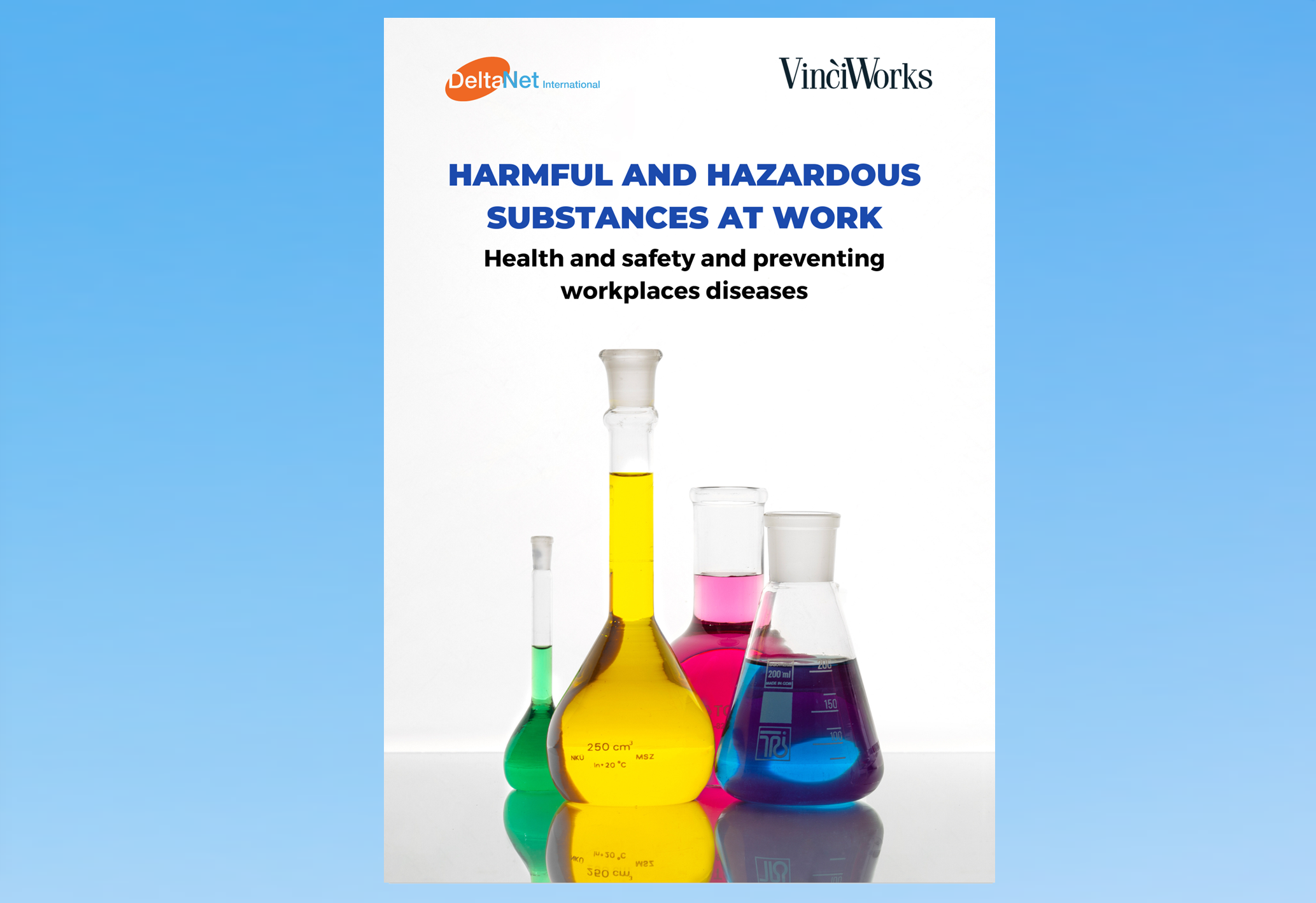Your Guide to Harmful and Hazardous substances at work
A substance hazardous to health is a substance or mixture with the potential to cause harm if they are inhaled, ingested, or come into contact, or are absorbed through the skin.
Nearly 20% of workers in the EU reported being exposed to chemical products or substances for at least a quarter of their working time, a proportion practically unchanged since 2000, and 15% report breathing in smoke, fumes, powder or dust at work according to the European Agency for Safety and Health at Work.
This Guide covers;
- What are hazardous substances?
- The risks of hazardous substances
- The hierarchy of prevention
- Carrying out a COSHH risk assessment
- What to do next on Harmful and hazardous substances at work?








